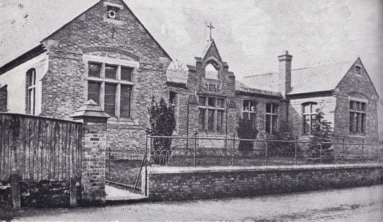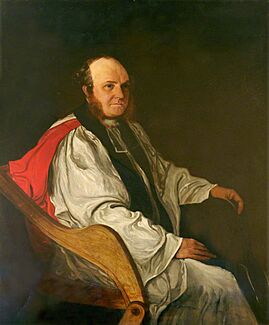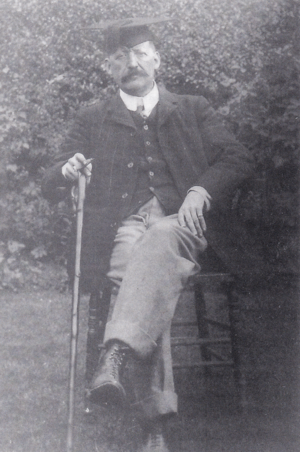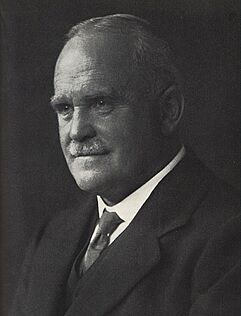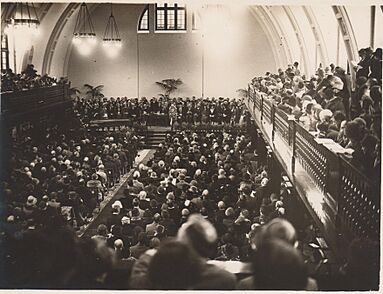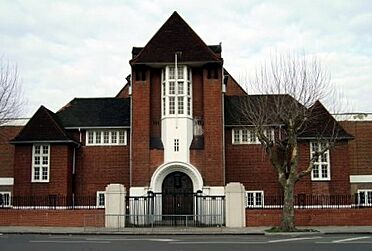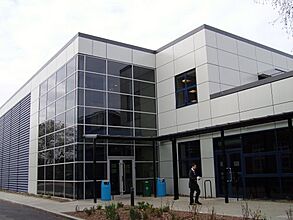The Latymer School facts for kids
Quick facts for kids The Latymer School |
|
|---|---|
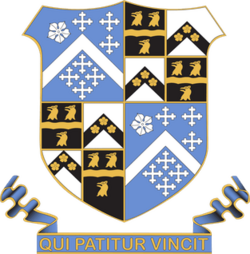 |
|
| Address | |
|
Haselbury Road
, Greater London
,
N9 9TN
England
|
|
| Coordinates | 51°37′30″N 0°04′28″W / 51.6250°N 0.0744°W |
| Information | |
| Type | Voluntary aided grammar school |
| Motto | Latin: Qui Patitur Vincit ("He who endures wins") |
| Established | 1624 |
| Founder | Edward Latymer |
| Local authority | Enfield Council |
| Department for Education URN | 102055 Tables |
| Ofsted | Reports |
| Chair of the Governing Board | Stephen Way |
| Headteacher | Joseph Gilford |
| Staff | 117 (as of November 2025) |
| Gender | Co-educational |
| Age | 11 to 18 |
| Enrolment | 1,380 (2023–24 academic year) |
| Houses | Ashworth Dolbé Keats Lamb Latymer Wyatt |
| Colour(s) | Royal and navy blue |
| Alumni | Latymerians |
| Website | https://www.latymer.co.uk |
The Latymer School is a grammar school in Edmonton, London. It's a voluntary aided and selective school, meaning it gets some government funding but also has its own governing body, and students are chosen based on academic ability. It teaches both boys and girls.
The school started in 1624 thanks to Edward Latymer. He wanted to provide education and clothes for eight poor boys in the area. The school officially became a co-educational grammar school in 1910. This happened when it reopened at its current location on Haselbury Road.
The Latymer School has special connections with two colleges at Cambridge University: St John's College and Corpus Christi College. These colleges have funds that can help former Latymer pupils continue their studies there.
Contents
The History of Latymer School
How Latymer School Began
Edward Latymer (1557–1627) was a legal official. In his will from 1624, he left money to educate and clothe eight "poor boys" from Edmonton. He wanted the boys to wear a red cross on their sleeves, called the "Latymers cross."
It took some time for Latymer's plan to start because of legal issues. The Edmonton trustees finally received their share of his money around 1633. Edward Latymer first mentioned a "petty schoole" in his will.
Reverend John Brooke became the first schoolmaster in 1634. His license was the first to mention a scolam grammaticalem (a grammar school) in Edmonton. Other important people in the 17th century also left money for the school. John Wild, a rich shoemaker, left funds in 1662 for the schoolmaster and for scholarships to Cambridge. Thomas Style, in 1679, left money for teaching twenty poor boys "grammar and Latin tongue." This showed a desire for a grammar school education.
The school was often called "the school at Edmonton" or the "free school." The money from different people was kept separate. Boys were known as Latymer's boys or Style's boys.
Changes in the 18th Century
In the 1700s, different charities that supported the school were combined. Schoolmasters from the Hare and Ware families taught for a long time. In 1739, the various educational funds, including those from Smith, Latymer, Wild, and Style, were joined together. During this time, the school operated from a building on Church Street, near All Saints Church.
The 19th Century: Decline and New Beginnings
The 1800s saw the Adams family as headmasters for a long time. John Adams I started in 1781, followed by his son and grandson. In 1811, a new schoolroom was built on Church Street, paid for by Mrs. Ann Wyatt. This building was called the Wyatt schoolroom. By 1823, 81 boys attended, and 20 of them studied Latin.
However, under Charles Henry Adams, the school's quality dropped a lot. There were also problems with money. Reports in the 1850s and 1860s showed that the education was poor, attendance was low, and the buildings were not good enough. The headmaster was described as "untrained." The school mainly offered basic education. The Latymer uniform, a blue tunic with a red collar and cross, was still worn.
Financial problems were serious. A committee found £962 missing in 1862. Charles Henry Adams eventually resigned in 1867.
After Adams left, things changed for Latymer. Rev. Dr. Charles Vincent Dolbé, a Cambridge graduate, became headmaster in 1867. He completely changed the school's purpose. It went from being a charity for "poor boys" to a "Middle Class School." This new school was for the children of local shopkeepers, civil servants, and professionals in Edmonton. The free clothing was stopped, and the lessons were updated.
Dolbé's leadership was very successful. The number of students quickly grew from almost none to 159 in his first year, and over 200 within five years. This growth meant the Church Street buildings had to be expanded in 1868 and 1874.
During this time, the school adopted a new motto: "Palmam Qui Meruit Ferat," which means "Let he who merits the palm bear it." This showed the school's new focus on achievement. Sports teams, like football, also became popular. Dolbé retired in 1897 after 30 years, leaving the school a respected place.
The 20th Century: Moving and Growing
William Shearer became headmaster in 1897. He wanted to update the school's lessons, adding science and business studies. By 1898, there were plans for a new school building on a different site because the Church Street buildings were too small. However, these plans faced many delays.
The old Church Street site remained in "appalling conditions." An inspection in 1907 said the school's buildings were "tumble-down, squalid, and utterly inadequately equipped." Student numbers had fallen to 56. The inspectors said the school's situation was "unhappy" and needed to end.
A new plan was finally agreed upon. In 1909, the Middlesex County Council took control of the Latymer Foundation. The school at Church Street closed at Christmas 1909 due to low student numbers and money problems. The old school building was sold for £400. This cleared the way for the school to reopen in a new place.
The new Latymer School, for both boys and girls, opened on Haselbury Road on September 26, 1910. Richard Ashworth was its first headmaster. He was a strong leader who set the tone for the new co-educational grammar school. He introduced the motto "Qui Patitur Vincit," meaning "He who endures, conquers." This motto focused on perseverance and character.
Under Ashworth, the school became part of a big educational experiment. It aimed to see if a very large secondary school could work and if more students could get in through the 11+ examination. Because of this, the school grew quickly. This led to the creation of the house system, starting with Latymer and Wyatt houses.
During World War I, the school community helped with many charitable activities. Students helped farmers with harvests, and the school hosted parties for wounded soldiers. The school also put on its first drama production, 'A Midsummer Night's Dream'.
In 1925, the school celebrated its 300th anniversary with a dinner. It was for this event that a staff member, Alice W. Linford, wrote the words that later became the School Song.
Between the World Wars, the school buildings grew a lot. In 1924, the North block was expanded, allowing for more students. Then, the Great Hall, new science labs, and new classrooms were built on the South side. These were finished in November 1928 and opened by the Duke and Duchess of York (who later became King George VI and Queen Elizabeth). Richard Ashworth passed away shortly after, in December 1928.
Victor Davis became headmaster in 1929. His time as headmaster included the Great Depression, World War II, and the 1944 Education Act. During WWII, Latymer students were evacuated to different places to keep them safe. After the war, Latymer became a voluntary aided grammar school under the 1944 Act.
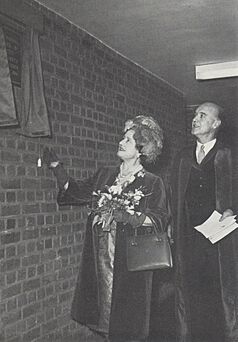
Dr. Trefor Jones was headmaster from 1957 to 1970. During his time, the school buildings were expanded and updated even more. New science labs, a new gym, music rooms, and special rooms for history and geography were mostly finished by 1964. Some of these new facilities, like art studios and a technology block, were officially opened by Queen Elizabeth, The Queen Mother in 1966. The school also opened a field study center in North Wales in 1966.
Dr. Jones's time as head coincided with a move towards comprehensive education in the UK. He and the school governors successfully argued for Latymer to keep its special status. The school's catchment area was then extended to the whole of the new London Borough of Enfield.
Edward Kelly became headmaster in 1970. The school continued to face challenges about becoming a comprehensive school. In 1977, the Governors successfully resisted these changes.
Geoffrey Mills was headmaster from 1983 to 1998. He improved the school's pastoral care by introducing Year Tutors in 1984, which is similar to the Heads of Year system today. He encouraged students to take part in sports, music, drama, and community work. He also started the Latymer fundraising campaign in 1984, which led to many improvements in school facilities.
In 1993, the school became a Grant-maintained school. This new status allowed it to continue as a selective grammar school. This status lasted until 1998.
The 21st Century: Modern Updates
After Geoffrey Mills retired, the school continued to grow and modernize. The Mills Building, a performing arts center, opened in 2000. A new sports and dining hall complex was opened by HRH The Princess Royal in 2006. More developments have continued to improve the school's facilities.
The School Buildings and Grounds
The Latymer School moved to its current location on Haselbury Road in 1910. The first buildings there cost £6,782 and could hold about 150 students. These included what is now the Small Hall and parts of the South Block.
To fit more students, twelve classrooms were added in 1924 with the North Block. A big development in 1928 included the Great Hall, new science labs, and the main South Block. The Great Hall is a key part of the school. It has a stage and seats over 1,000 people. It's used for assemblies, concerts, plays, and other big events.
During Dr. Trefor Jones's time as headmaster, much of the school was updated. New buildings from this time (mostly finished by 1964) included gyms, art studios, a technology block, more science labs, music rooms, and special rooms. The gyms, art studios, and technology block were officially opened in 1966 by Queen Elizabeth, The Queen Mother. The 12 science labs and 6 technology rooms were updated again in the late 1990s.
A special common room for Sixth Form students was built in 1984. In 2000, a former gym was turned into the current Sixth Form common room. The Mills Building, named after former headmaster Geoffrey Mills, opened in 2000. It's a performing arts center with facilities for Music, Drama, and Media Studies.
A new Sports and Dining Complex was opened by HRH The Princess Royal in 2006. This building uses environmentally friendly features like solar panels and natural lighting.
The Seward Studio is a flexible space for performances and art. It's named after Dame Margaret Seward, a former head girl. It opened in 2010 as part of the school’s 100-year celebrations. It was created by changing the old boys’ gym.
In September 2022, a new all-weather football pitch was opened on the playing field. It was built with money from the Football Foundation.
The House System
The Latymer School has a house system. When students join, they are put into one of six houses. The house system is used for many things, like looking after students, daily registration, and fun activities outside of lessons.
The six houses are named after important people connected to the school or the local area:
- Ashworth: Named after Richard Ashworth, who was headmaster from 1910 to 1928.
- Dolbé: Named after Rev. Dr. Charles Vincent Dolbé, headmaster from 1867 to 1897.
- Keats: Named after John Keats, a famous poet who lived nearby in Enfield.
- Lamb: Named after Charles Lamb, an English writer who passed away in Edmonton.
- Latymer: Named after Edward Latymer, who founded the school.
- Wyatt: Named after Ann Wyatt, who gave money in 1811 to build a new schoolroom.
From Years 7 to 11, each year group is split into six Form Groups, one for each house. These groups meet every day for registration and to check in with their teachers. Students in Years 7 and 8 are mostly taught within their Form Groups. From Year 9 onwards, students are taught in mixed groups for some subjects, but their Form Groups still meet for registration and pastoral care. Form Tutors usually stay with their group from Year 7 to Year 11.
History of the House System
The house system at Latymer was first mentioned in 1914. Two "new" houses, Keats and Lamb, joined the original two, Latymer and Wyatt. This four-house system started when Richard Ashworth was headmaster. Competitions between houses became a regular part of school life.
In 1929, under Headmaster Victor Davis, two more houses were added: Ashworth and Dolbé. This made it six houses. Later, in 1958, Headmaster Dr. Trefor Jones made sure that staff were formally assigned to houses. He also started regular house meetings and charity activities for each house.
From the 1970s, the house system became even more important for student care. Headmaster Edward Kelly made sure that students' form groups matched their house. This was further improved by Geoffrey Mills, who introduced Year Tutors in 1984, which led to the current Heads of Year system.
House Activities and Values
The house system is a big part of being a student at Latymer. It offers:
- Competitions Between Houses: There are many sports events (like netball, football, hockey, tennis) and cultural events (like music and drama) held every year. The Dormer Shield is given to the house with the most points.
- Leadership and Community: Older students and staff usually organize these events.
- Charity Work: Each house plans fundraising events and community service projects. Students help choose the charities and plan activities like the Christmas Bazaar, cake sales, and non-uniform days.
School Ratings and Rankings
The school had its most recent Ofsted inspection on March 24, 2022. It received an overall grade of 'Good'. Before that, it was rated 'Outstanding' in 2008. Its Sixth Form facilities are still rated 'Outstanding' by Ofsted.
In the 2025 'Parent Power' rankings by The Times newspaper, The Latymer School was ranked 17th in the UK. In 2024, 86% of GCSE exams received A-grades (17th nationwide), and 68% of A-level entries got A-grades, with 87% getting A or B grades (21st nationwide).
Headteachers of Latymer School
- Rev. John Brooke (1634–c.1660s)
- Thomas Hare (1662-1666)
- Daniel Callis (1666–1667)
- John Hare (1667–1679)
- Benjamin Hare (1679–1723)
- Thomas Hare II & Rev. John Button (1724 – c.1727)
- John Whitby (c.1727 – 1737)
- Zachariah Hare (1737–1742)
- James Ware (1742–1771)
- James Ware II (1771–1772)
- James Draper (1772–1773)
- Samuel Draper (1773–1780)
- John Adams (1780–1800)
- John Adams II (1802-1828)
- Charles Henry Adams (1828–1867)
- Rev. Dr. Charles Vincent Dolbé (1867–1897)
- William Alexander Campbell Shearer (1897–1909)
- Richard Ashworth (1910–1928)
- James North (1928–1929) - Acting Headteacher
- Victor Samuel England Davis (1929–1957)
- Dr. Trefor Jones (1957–1970)
- Edward Stanley Kelly (1970–1983)
- Geoffrey Thomas Mills (1983-1998)
- Jackie Hardie (1998-1999) - Acting Headteacher
- Michael John Cooper (1999-2005)
- Mark E. Garbett (2005-2015)
- Maureen Cobbett (2015-2025)
- Joseph Gilford (2025)
Famous Former Students
Many notable people have attended The Latymer School. Here are a few:
In Entertainment
- Evelyn Ankers, actress
- Clare-Hope Ashitey, actress
- Eileen Atkins, actress
- Bruce Forsyth, entertainer
- Tim Pope, director
- Leslie Welch, radio and TV personality, known as the Memory Man
- Aubrey Woods, actor, known for "The Candy Man" in Willy Wonka and the Chocolate Factory
- Vivian Oparah, actress
- Jasmine Blackborow, actress
- Ritchie Coster, actor
- Dex Lee, actor
- Joe Shaw, actor and director
- Max Bennett, actor
In Politics
- Syed Kamall, professor of politics
- Albert Meltzer, writer
- Ash Sarkar, journalist and political activist
- David Walder, politician
In Academia
- Mark Abrams, social scientist
- Margaret Seward, First Female Chief Dental Officer
- John Horlock, former vice-chancellor of the Open University
- Liz Jolly, Chief Librarian at The British Library
- John Prebble, historian and novelist
- Stephen Wheatcroft, economist and aviation expert
- Yorick Wilks, artificial intelligence pioneer
- Q. D. Leavis, literary critic
- Derek Savage, poet
In Sport
- Ted Blake, trampoline pioneer
- Johnny Haynes, former Fulham F.C. and England football captain
- Leslie Medley, former Spurs and England footballer
- Arthur Sanders, footballer
- Mark Warburton, former football manager of Queens Park Rangers
In Music
- James Blake, electronic artist
- Grace Chatto, cellist in Clean Bandit
- Richard Cook, music writer
- B.J. Wilson, original drummer of Procol Harum
- Ivana Gavrić, British pianist
Other Notable People
- Nick Holtam, 78th bishop of Salisbury
- Philip North, bishop of Blackburn


